In the last 15 years, big steps have been made in understanding diseases at a molecular and genetic level. This progress was fueled by the completion of the human genome in 2001. Biomarkers are key molecules found in our bodies that help predict or diagnose diseases. They also help track how well treatments are working or if a disease is getting worse.
The field of precision medicine is growing, aiming to give the right treatment to the right patient at the right time. Biomarkers are at the heart of this effort, driving new discoveries. By focusing on biomarkers, we can make health better and outcomes for patients better, making biomarkers a key part of this journey.
Key Takeaways
- Biomarkers are essential for predicting or diagnosing diseases and monitoring treatment response.
- Biomarker research has led to significant advances in the understanding of molecular and genetic basis of disease.
- The importance of biomarkers lies in their ability to improve patient outcomes and enhance treatment precision.
- Biomarker tests can lead to better patient outcomes and fewer side effects by allowing for treatments to be tailored to individual patients’ molecular profiles.
- The implementation of biomarker tests in clinical practice is essential for advancing precision medicine.
- Costs associated with biomarker testing have decreased due to rapid technological advances in testing methodologies.
Understanding the Science Behind Biomarkers
Biomarker development is key in modern healthcare. It helps doctors diagnose and treat diseases better. Biomarker testing uses clinical biomarkers to check for disease presence or progression. These markers fall into genetic, proteomic, and metabolomic categories.
Developing biomarkers means finding specific biological markers for disease prediction or diagnosis. Then, biomarker testing uses these markers to measure disease presence or progression. Clinical biomarkers are essential here, acting as measurable disease indicators.
Some examples of biomarkers and their uses include:
- Genetic biomarkers: used to predict the risk of inherited diseases
- Proteomic biomarkers: used to diagnose and monitor diseases such as cancer
- Metabolomic biomarkers: used to monitor the progression of diseases such as diabetes
Biomarkers could change medicine, making treatments more personalized and effective. By grasping biomarker science, we can fully use biomarker development and testing. This leads to better health outcomes for patients.
| Biomarker Type | Application |
|---|---|
| Genetic | Predicting inherited diseases |
| Proteomic | Diagnosing and monitoring cancer |
| Metabolomic | Monitoring diabetes progression |
The Revolutionary Impact of Biomarker Testing in Healthcare
Biomarker testing has changed healthcare a lot. It lets doctors use personalized medicine approaches to make treatment plans just for each patient. This way, they can find the right treatments and avoid bad side effects.
Thanks to predictive biomarkers, doctors can now make targeted therapies for cancer. For instance, personalized medicine biomarkers help find out who will get better from certain treatments. This makes treatment plans more effective and less wasteful.
Some big advantages of biomarker testing are:
- Improved treatment outcomes
- Reduced side effects
- Increased efficiency in treatment plans
- Enhanced patient stratification
The use of predictive biomarkers and personalized medicine biomarkers is changing healthcare. It’s making treatments more effective and efficient. This leads to better health outcomes for patients.
| Biomarker | Disease | Prevalence |
|---|---|---|
| BRCA1/2 | Breast cancer | 5-10% |
| EGFR | Lung cancer | 10-20% |
| KRAS | Colorectal cancer | 40-50% |
Essential Biomarkers for Monitoring Your Health
Biomarker analysis and testing are key to spotting health risks early. They help us understand our health better. This way, we can make smart choices about our lifestyle and treatments.
Important biomarkers include heart health markers like troponin and C-reactive protein. They show if the heart muscle is damaged or inflamed. Inflammation markers like interleukin-6 also tell us about our immune system.
Hormonal and metabolic biomarkers are also vital. They include thyroid-stimulating hormone and markers for glucose and insulin. These help find issues with hormone balance and how our body uses glucose.
Key Biomarkers to Monitor
- Cardiovascular biomarkers: troponin, C-reactive protein, and triglycerides
- Inflammatory markers: interleukin-6 and C-reactive protein
- Hormonal biomarkers: thyroid-stimulating hormone and testosterone
- Metabolic indicators: glucose, insulin, and hemoglobin A1C
Regular biomarker tests keep us informed about our health. They help us make better choices for our lifestyle and treatments. By using biomarker analysis, we can actively care for our health and avoid future problems.
How to Interpret Your Biomarker Results
Understanding biomarker results needs a deep grasp of the science behind them. Biomarker research and biomarker development have made many tests available. Knowing how to read these results helps people make smart health choices and work with doctors to find the best treatments.
When looking at biomarker results, consider a few important things:
- The type of biomarker test used
- The clinical context in which the test was performed
- The presence of any underlying medical conditions
- The possibility of false positives or false negatives
It’s vital to talk to a healthcare provider about biomarker results. They can explain what the results mean and how they guide treatment. 
| Biomarker Test | Clinical Context | Interpretation |
|---|---|---|
| Tissue biopsy | Cancer diagnosis | Presence of specific biomarkers |
| Liquid biopsy | Cancer monitoring | Changes in biomarker levels |
By learning to understand biomarker results, people can be more involved in their health. Biomarker research and biomarker development keep improving, opening doors to more personalized and effective treatments.
Practical Steps for Biomarker Optimization
Improving biomarkers through lifestyle changes, diet, and exercise can greatly benefit health. Making smart choices in these areas can change biomarker profiles and lower disease risks.
The National Institute of Environmental Health Sciences says biomarkers include simple measures like cholesterol and blood pressure. Biomarker testing is vital for precise medicine, like in cancer treatment.
Lifestyle Modifications
Changes like getting enough sleep, managing stress, and avoiding toxins can improve biomarkers. Eating a diet full of fruits, veggies, and whole grains is good for heart health.
Dietary Approaches
Eating like you’re on the Mediterranean diet can boost heart health biomarkers. Exercise, like walking or jogging, can also improve insulin sensitivity and reduce inflammation. This helps with metabolic health biomarkers.
Exercise Strategies
Using strength training and high-intensity interval training can enhance muscle and fitness biomarkers. By choosing wisely in diet, exercise, and lifestyle, people can improve their biomarkers and lower disease risks.
| Lifestyle Modification | Biomarker Optimization |
|---|---|
| Healthy Diet | Cardiovascular Health |
| Regular Exercise | Metabolic Health |
| Stress Management | Overall Health |
Advanced Technologies in Biomarker Analysis
New technologies have greatly enhanced biomarker analysis. They help find novel biomarkers and make tests more accurate. Next-generation sequencing, mass spectrometry, and artificial intelligence are key. These advancements are changing precision medicine.
Advanced biomarker analysis has many uses. It helps detect diseases early and predict treatment outcomes. For instance, low-dose CT scans are now used to catch lung cancer early. Adding novel biomarkers to these tools will make diagnosis even better.
Some main benefits of these technologies include:
- More accurate biomarker tests
- Better diagnosis and treatment plans
- More efficient and cost-effective biomarker discovery
- A big leap for precision medicine
By 2025, AI and ML will greatly boost biomarker analysis. They will help doctors make better decisions. ML algorithms will also speed up finding and testing biomarkers, making research faster.
Common Mistakes in Biomarker Testing and How to Avoid Them
Biomarker testing is a complex process. It needs careful attention to avoid common mistakes. Sample collection errors, wrong interpretations, and timing issues can affect test results.
Knowing these pitfalls and how to avoid them is key. This ensures biomarker tests are done right. It’s vital in biomarker research to find and validate biomarkers for disease diagnosis and treatment.
Some common mistakes to avoid in biomarker testing include:
- Incorrect sample collection and handling
- Insufficient validation of biomarker tests
- Failure to consider timing and other factors that can impact test results
By being aware of these pitfalls and taking steps to avoid them, biomarker tests can be accurate and reliable. This is critical for making treatment decisions and improving health outcomes. It requires careful attention and a commitment to best practices in biomarker research.
| Common Mistakes | Consequences | Prevention Strategies |
|---|---|---|
| Sample collection errors | Inaccurate test results | Use proper sample collection and handling procedures |
| Insufficient validation | Unreliable test results | Validate biomarker tests using multiple samples and methods |
| Timing considerations | Inaccurate test results | Consider timing and other factors that can impact test results |
The Role of Biomarkers in Personalized Medicine
Biomarkers are key in creating treatment plans just for each patient. They help doctors see how a disease might grow and find risks early. This way, they can plan to stop these risks before they start.
In cancer treatment, biomarkers are very important. They help doctors make treatments that really work for each patient. This makes treatments more effective and safer.
Biomarkers are changing healthcare in big ways. For example, prognostic biomarkers help with serious diseases. Diagnostic biomarkers are vital for diseases like rheumatoid arthritis. And biomarkers for disease severity help manage skin problems.
Some main uses of biomarkers include:
- Predictive healthcare: Biomarkers can forecast disease growth and spot risks early.
- Prevention strategies: Biomarkers guide ways to avoid health problems.
- Customized treatment plans: Biomarkers help make treatments that fit each patient’s needs.
Finding and using biomarkers takes teamwork. It needs doctors, researchers, and drug makers working together. By using biomarkers, doctors can give better treatments. This leads to better health for patients.
Transforming Healthcare Through Biomarker Innovation
The future of healthcare is bright thanks to biomarker research and development. These measurable signs of health are getting better and better. They can change how we prevent, diagnose, and treat diseases.
With new biomarker technologies, doctors can understand each patient’s needs better. This means they can give more tailored and effective care.
Recent advances in biomarker analysis are huge. For example, liquid biopsies and AI-driven data analysis are changing the game. Liquid biopsies can spot cancer in the blood without surgery, saving lives.
Also, combining biomarker data with advanced analytics finds new ways to treat diseases. This speeds up drug development and makes clinical trials more successful.
As biomarkers become more important in healthcare, personalized medicine will become the standard. Doctors will use each patient’s biomarker profile to create custom treatment plans. This will help patients get better care and take charge of their health.
The future of healthcare is full of possibilities thanks to biomarker innovation. It’s an exciting time for medicine and for patients.



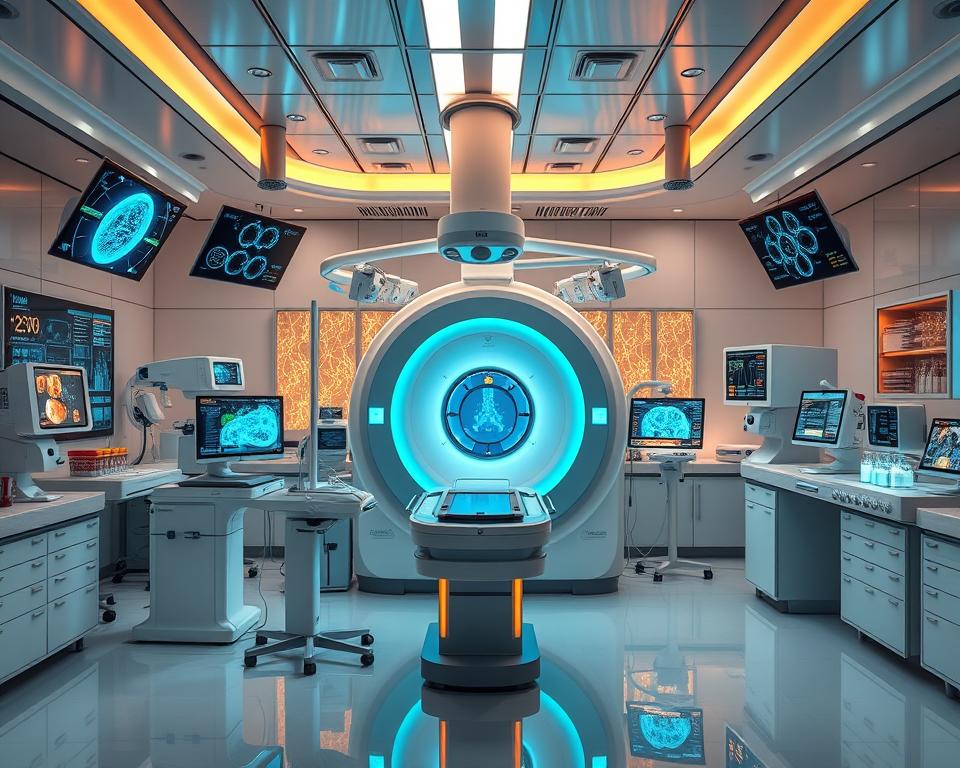
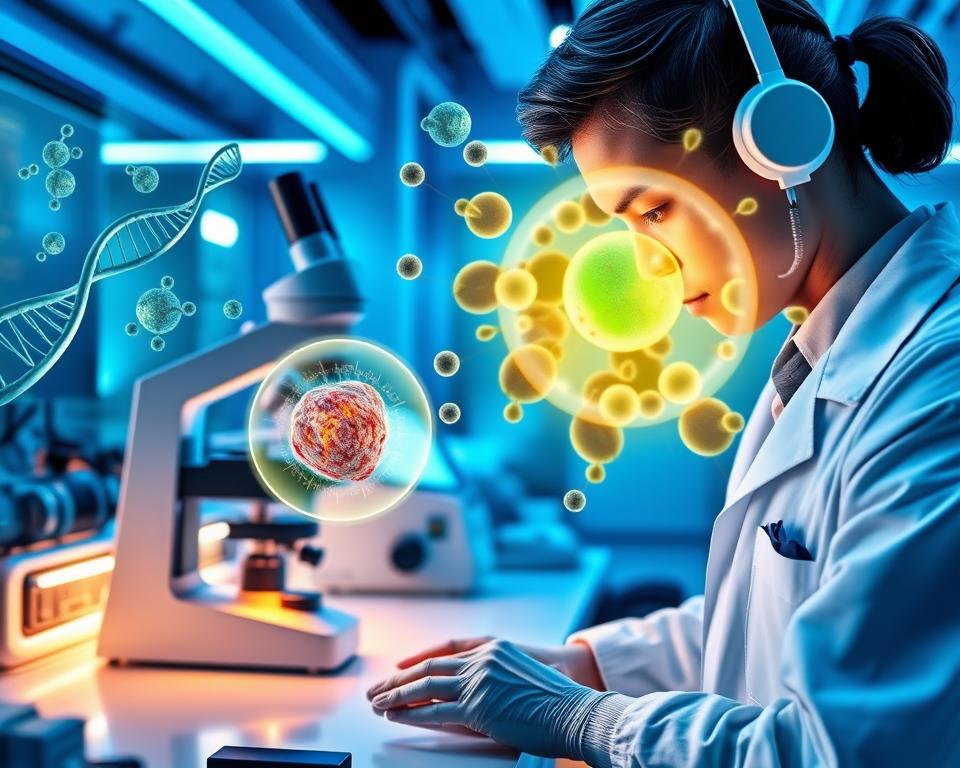
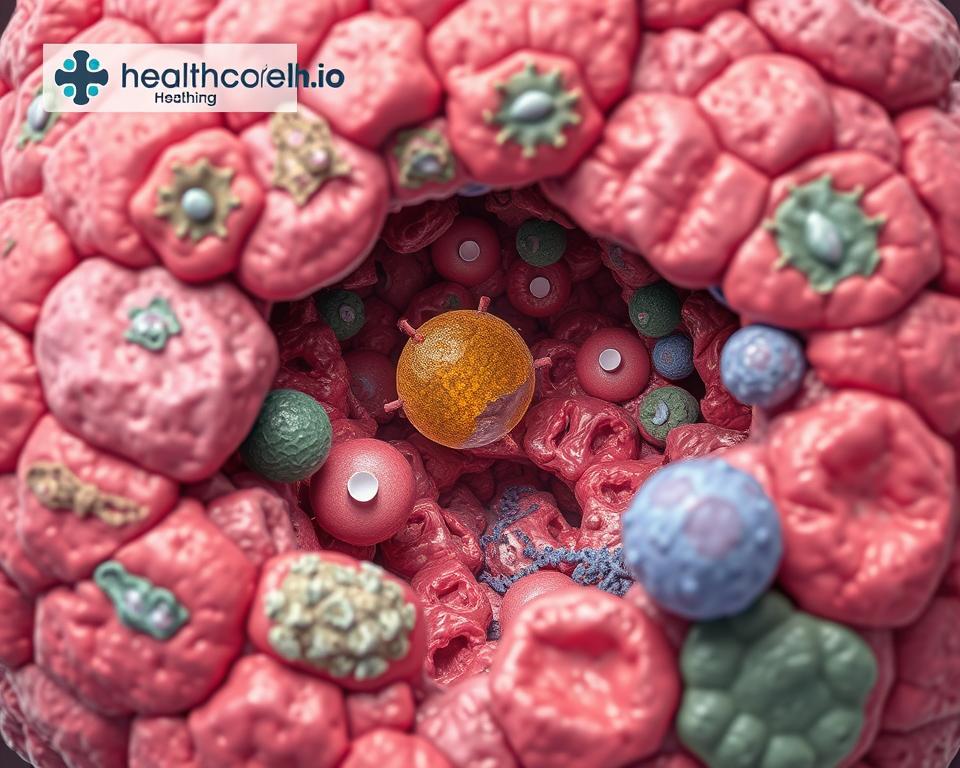
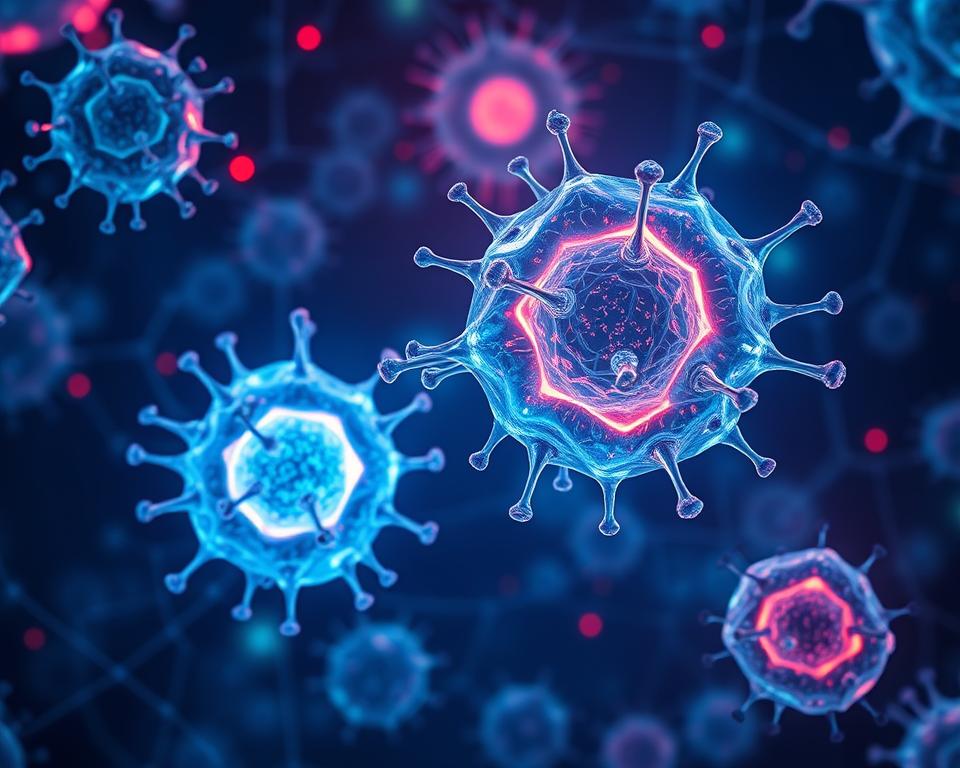



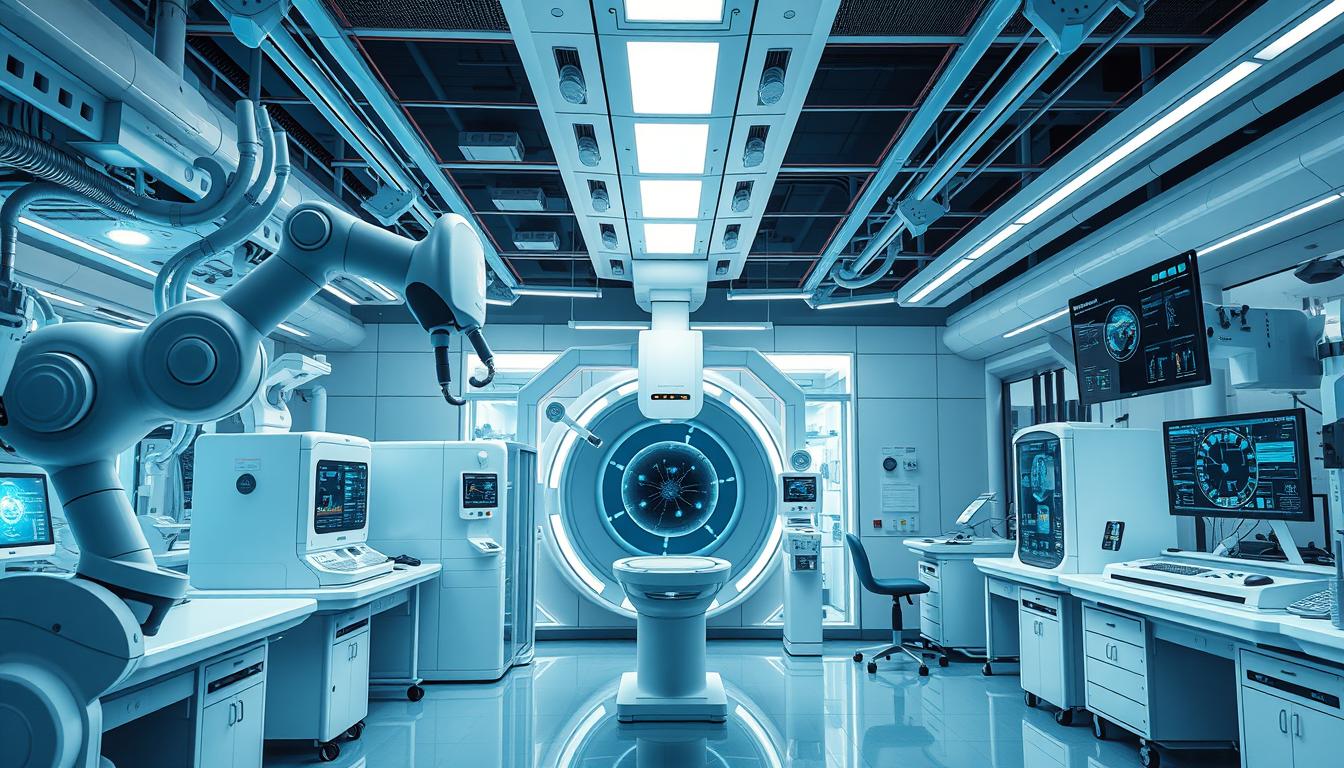
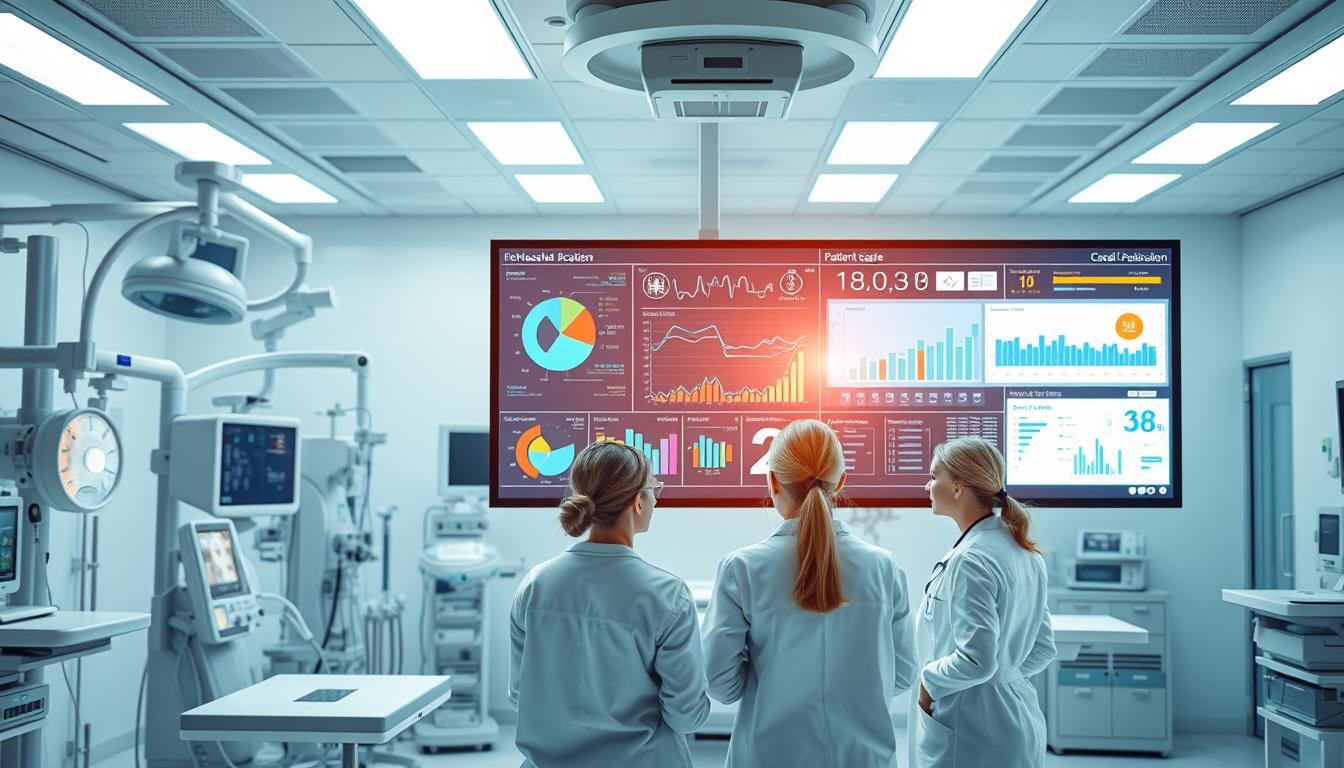

Leave a Reply